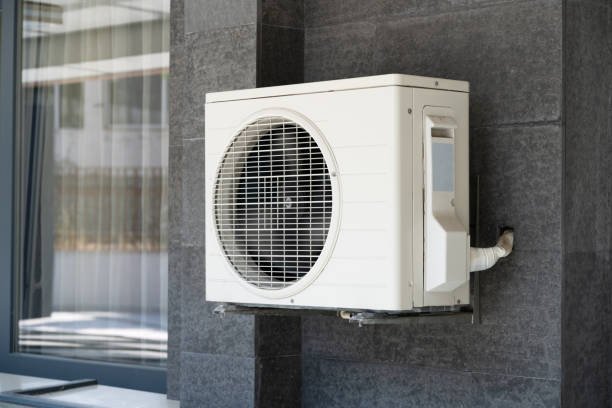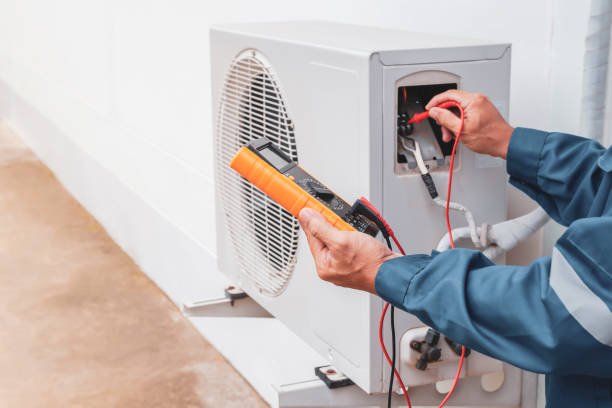Is It Safe to Keep the AC On When It's Not Cooling? What You Should Do
Introduction
In the scorching heat of summer, air conditioning becomes not just a luxury but a necessity. But what happens when your faithful AC unit fails to cool effectively? Many people find themselves asking: Is it safe to keep the AC on when it's not cooling? What should you do? This article explores the nuances of running an air conditioner that isn't cooling properly, offering insights into potential risks, solutions, and when to call for professional help.
Is It Safe to Keep the AC On When It's Not Cooling? What You Should Do
When an air conditioning unit fails to deliver cold air, it can be tempting to leave it running in hopes that it will kick back into action. However, doing so may lead to several complications.
Understanding Your AC System’s Functionality
Your air conditioning system is designed to regulate indoor temperatures by removing heat from your living space. This involves various components working together harmoniously:
- Compressor: Compresses refrigerant gas and circulates it through the system.
- Evaporator Coil: Absorbs heat from indoor air.
- Condenser Coil: Releases absorbed heat outside.
- Thermostat: Regulates temperature settings.
When any of these parts malfunction, it can disrupt the entire cooling process.
Potential Risks of Keeping the AC On Without Cooling
Keeping an air conditioner running without proper cooling can lead to several issues:

Indicators That Your AC Needs Attention
Knowing when your AC requires repair is crucial for preventing further complications:
- Unusual noises (clanging or grinding)
- Refrigerant leaks (puddles around the unit)
- Foul odors (indicating mold or mildew growth)
- Inconsistent temperature control
If you're experiencing any of these symptoms, it's time to consult an HVAC contractor or search for "AC repair near me."
What Causes Air Conditioners Not to Cool Properly?
Understanding why your AC isn’t cooling can guide you toward effective solutions.
Refrigerant Issues
Refrigerant is essential for transferring heat away from your home. Low levels due to leaks can significantly affect performance.

Signs of Refrigerant Problems
- Ice buildup on evaporator coils
- Hissing or bubbling sounds
Dirty Filters and Coils
Dirty filters restrict airflow and impact efficiency.
How Often Should You Change Filters?
Generally, it's recommended to change or clean filters every 1–3 months based on usage.
Thermostat Malfunctions
A faulty thermostat may misread temperatures, causing erratic behavior in your cooling system.
Quick Fixes for Thermostat Issues
- Check if it's set correctly.
- Replace batteries if applicable.
What Should You Do If Your AC Isn't Cooling?
Finding yourself in a situation where your air conditioner isn't cooling can be frustrating. Here's a step-by-step guide on what you should do next:
Step 1: Check Your Thermostat Settings
The first line of defense is ensuring your thermostat is set correctly.
Common Errors:
- Set on “HEAT” instead of “COOL”.
- Incorrect temperature setting leading to insufficient cooling.
Step 2: Inspect Air Filters and Clean Them
Dirty filters are often the culprit behind poor performance.
Cleaning Tips:
Step 3: Examine Outdoor Condenser Unit
Your outdoor unit plays a crucial role in dissipating heat.
What To Look For:
- Obstructions like leaves or debris
- Bent fins that need straightening
DIY Cleaning Steps:
When Should You Call for Professional Help?
While some issues may be resolved through DIY methods, others require expert attention.
Signs You Need Air Conditioner Repair Services
Choosing an HVAC Contractor Near You
Finding reliable HVAC services is pivotal for resolving more severe problems effectively.
Questions To Ask Before Hiring:
- Are you licensed and insured?
- Do you provide warranties on repairs?
- Can you offer references?
Searching online for "air conditioner repair near me" will yield local contractors who can assist you promptly.
Preventative Maintenance Tips for Optimal Performance
Taking proactive measures can extend your air conditioner's lifespan while ensuring efficient operation.
Regular Filter Changes
Making filter changes part of your routine maintenance helps sustain airflow and efficiency.
Annual Professional Inspections
Scheduling yearly check-ups with an HVAC contractor ensures components are functioning correctly before peak seasons approach.
Keeping Vents Clear
Regularly inspect vents inside your home for obstructions like furniture or curtains that could hinder airflow.
FAQs About Air Conditioning Systems
Q1: Can I run my AC if it's not cooling?
A1: While technically possible, it's not advisable as it may lead to further damage and higher energy costs.
Q2: How often should I have my AC serviced?
A2: At least once a year before peak usage seasons is recommended for optimal performance.
Q3: What should I do if I smell something burning from my AC?
A3: Immediately turn off the unit and contact an HVAC professional as this could signify serious electrical issues.
Q4: Why does my air conditioner run but doesn't cool?
A4: Possible causes include low refrigerant levels, dirty coils/filters, or thermostat malfunctions requiring further inspection by a technician.
Q5: How can I improve my air conditioner's efficiency?
A5: Regular maintenance such as cleaning filters, ensuring proper insulation in your home, and sealing ductwork can improve efficiency significantly.
Q6: Is there a way to troubleshoot minor issues myself before calling a professional?
A6: Yes! Start with simple checks like thermostat settings, filter cleanliness, and outdoor unit obstructions before seeking help from ac repair services near you.
Conclusion
Navigating through hot summer days without effective cooling can be challenging; however, understanding whether it’s safe to keep the AC on when it's not cooling is essential for both comfort and safety reasons. Taking immediate action by troubleshooting common problems can save time and money while avoiding potential hazards associated with neglecting malfunctioning units. Remember always—when in doubt—consulting with HVAC professionals will ensure that Las Cruces air conditioning repair you're making informed decisions about maintaining one of life's essential conveniences.
In summary—don’t hesitate! If you're still asking yourself—is it safe to keep the AC on when it's not cooling? What should you do—be proactive about addressing issues head-on! Seek advice from trusted sources or search for “AC repair near me” today!